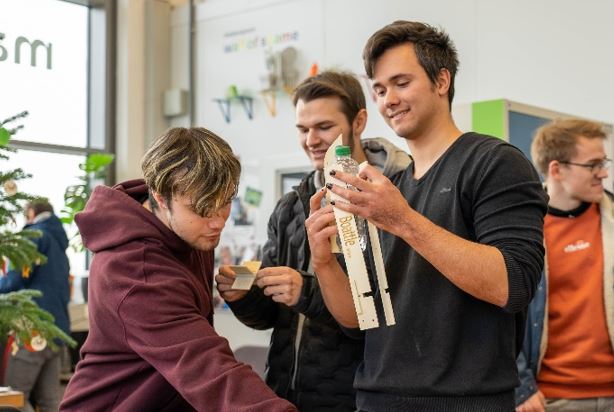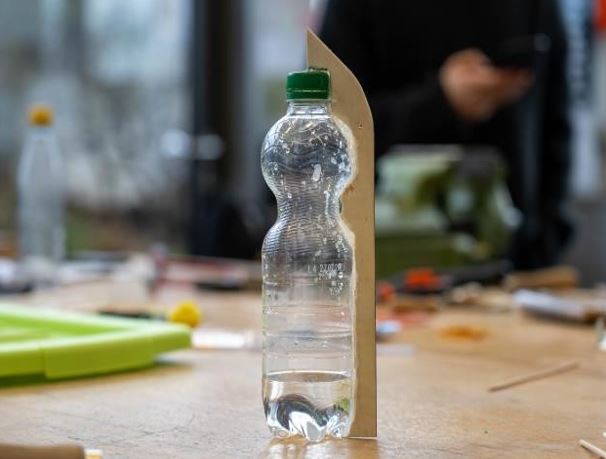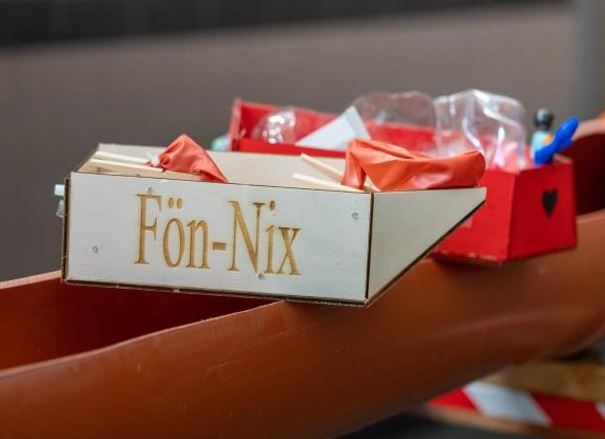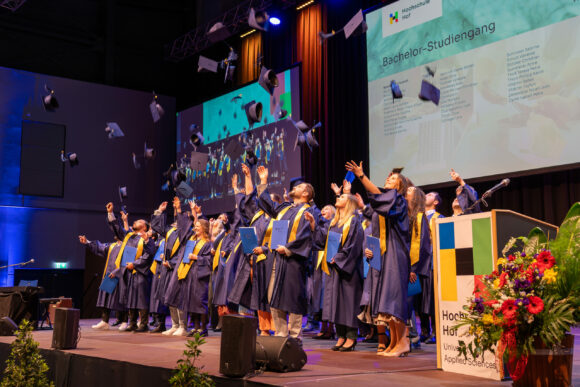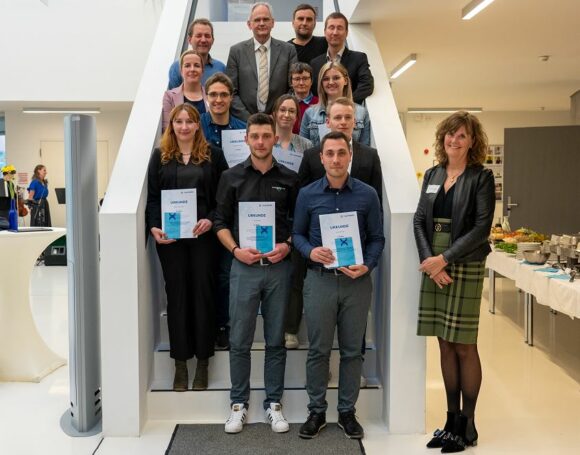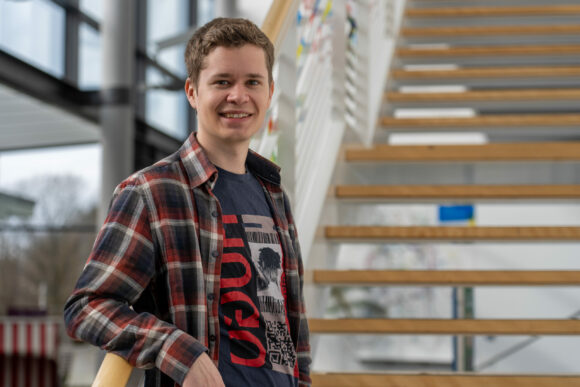Admittedly, the Hof students who recently took part in the MacGyver project in the engineering course were not even born at the height of his TV career. But the myth of the action hero Angus MacGyver continues to have an effect. MacGyver was a television series produced from 1985 to 1992. The protagonist Richard Dean Anderson alias MacGyver is a mixture of secret agent and helper in distress. His trademark is the practical use of everyday objects such as pocket knives, chewing gum or duct tape and the use of basic scientific laws to solve his tricky missions. Since then, the word MacGyver has been synonymous with a clever inventor.
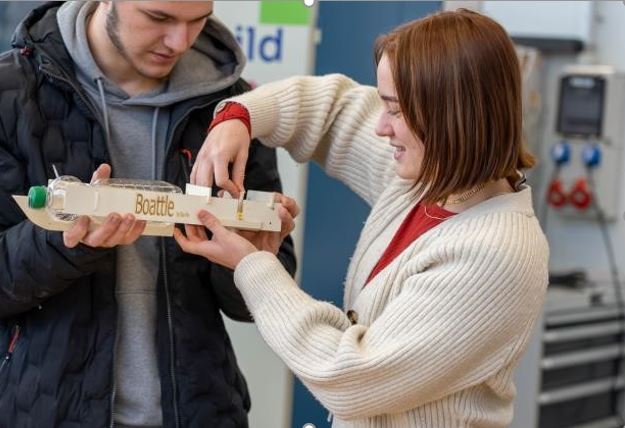
The goal of the competition is to find an original solution to a given problem in a given amount of time and with the resources available original solution to a specific task. Image: Hof University of Applied Sciences;
In keeping with the spirit of the resourceful TV hero, the students of the newly established engineering course recently took part in the MacGyver project in the Makerspace. The goal is to find an original solution to a specific task in a given time and with existing resources – in this case: building a boat or boat-like vehicle that moves under its own power. The students have one day and work together in teams. Only given materials are allowed as tools. “Google is deactivated during this time,” says René Göhring jokingly. Göhring manages the Makerspace at Hof University of Applied Sciences and supervises the teams during the competition. “For us, it’s about the students unleashing their own creativity, drawing on their experience and skills and using the potential in the team, and not immediately looking for a solution on the Internet.” The results will be presented at the end and tested in a water channel. The team that performs best in the categories of teamwork, design, speed and distance traveled wins.
The MacGyver project appeals to different skills and subject areas, such as mechanical engineering, but also materials engineering, project management or working in a team.”
Tilmann Händel, engineering student

moves under its own power, was the task to be solved. The students have one
day and work together in teams. Only given materials are allowed as aids.
Image: Hof University of Applied Sciences;
Fellow student Madeleine Dehmel also thinks the project and the general offerings in the Makerspace are great:
Gaining practical experience is incredibly valuable. It’s great that we have access to the machines and can use the materials and devices like the 3D printer or the laser cutter and also work on our own projects here in the MakerSpace.”
Madeleine Dehmel, engineering student
The MacGyver project took place in this form for the first time and is one of a total of 10 offerings in the ING Practice module, from which students can choose three modules.
Experimentation and trying things out are the main focus here.”
Prof. Dr.-Ing. Anke Müller, Dean
Dean and professor of manufacturing processes at Hof University of Applied Sciences. She played a leading role in the redesign of the engineering degree program and is also the source of ideas for the MacGyver project.
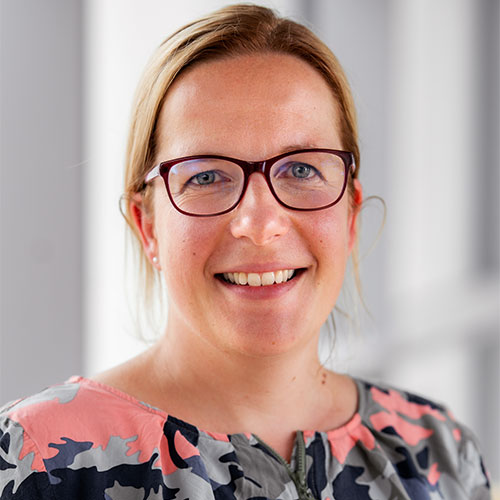
She adds: “The practical courses are part of the orientation phase in the first and second semesters. Here, students gain a practical and application-oriented insight into engineering in various modules and also have the chance to better identify their own inclinations and interests. This is a good basis for deciding on one of the five possible fields of study in the third semester.”
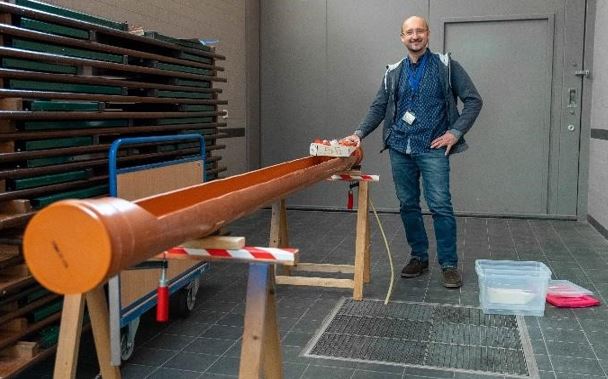
best in the categories of teamwork, design, speed and distance traveled wins the competition.
René Göhring, head of the MakerSpace, supervises the teams.
Image: Hof University of Applied Sciences;
